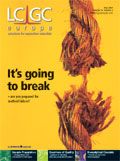Acquisition adds immunoaffinity columns to Waters' portfolio
VICAM, the food safety technology business, headquartered in Watertown, Massachusetts, USA, has been acquired by Waters. The deal also included the associated net assets of VICAM and has proceeded under undisclosed terms.
VICAM, the food safety technology business, headquartered in Watertown, Massachusetts, USA, has been acquired by Waters. The deal also included the associated net assets of VICAM and has proceeded under undisclosed terms.

The food safety technology business produces single-use test kits for the determination of mycotoxin and microbiological organisms present in food products. Mycotoxins are carcinogenic compounds that are produced naturally by soil fungi or molds, which can contaminate plants stressed by drought or improperly stored grain/feed.
The company's proprietary products employ monoclonal antibodies that are highly specific for certain mycotoxins in a sample, which facilitates their identification and concentration measurement. Immunoaffinity columns available from VICAM are used for regulatory-compliant analysis of carcinogenic contaminants. The columns work by isolating the contaminants to be measured in the laboratory with sensitive methods such as fluorometer measurement, HPLC or Ultra Performance LC and mass spectrometry (MS).
Regulations on mycotoxin contamination have become more stringent and have increased in number as a result of consumer demand for contaminant-free supplies of food. Consumer awareness has been confirmed by the Annual Report of the European Commissions' Rapid Alert System for Food and Feed (RASFF), which reported that mycotoxin contamination in food imported to or grown within the EU was the highest percentage (44%) of information notifications by identified risk during 2004.
For more information visit Waters' website at www.waters.com
Thermo's golden glory
Thermo Electron has received the Gold Editor's Award at Pittcon 2006. Editors attending the conference voted for Thermo's LTQ Orbitrap hybrid mass spectrometer as the best new product introduction of the show.

The mass spectrometer finds use in small molecule research, proteomics, metabolomics and drug discovery applications. It offers users high mass resolution and accuracy, detection power and dynamic range.
Furthermore, Thermo's top position at Pittcon 2006 can be added to previous successes, such as the Silver Editor's Award that the company's Finnigan LTQ FT mass spectrometer won at Pittcon three years ago. Additionally, the company has recently been named "2005 Company of the Year" by Instrument Business Outlook.
For more information visit Thermo's website at www.thermo.com
Genevac complies with WEEE
Genevac has announced the success of various schemes that enable it to comply with the EU directive on waste electrical and electronic equipment (WEEE). This directive is set to become law in July 2006.
The company has taken back and recycled 150 evaporators, cold traps and pumps that are covered under category 9 of the directive as a result of upgrade and trade-in schemes that have taken place over the last year. The business development manager, Rob Darrington, commented, "Upgrade and trade-in programmes over the last year have allowed us to meet the WEEE recycling targets ahead of the new directive becoming law and to establish an audit trail for the process."
Further details on the company's product lines and schemes can be found at the website, www.genevac.co.uk
Order received for commercial GC/FTMS
Varian has received an order for its gas chromatogram/Fourier transform mass spectrometer (GC/FTMS), which is now commercially available. This product offering can be attributed to the company's acquisition of IonSpec in February 2006.
The system incorporates a Varian GC with a high performance FTMS, providing researchers in environmental laboratories with optimum structural elucidation and quantification of environmental contaminants. Accurate mass determination can be gained by using FTMS and, in combination with a GC instrument, users can analyse complex mixtures that are found in environmental samples and physiological fluids.
For more information visit the website at www.ionspec.com
New Study Reviews Chromatography Methods for Flavonoid Analysis
April 21st 2025Flavonoids are widely used metabolites that carry out various functions in different industries, such as food and cosmetics. Detecting, separating, and quantifying them in fruit species can be a complicated process.
Analytical Challenges in Measuring Migration from Food Contact Materials
November 2nd 2015Food contact materials contain low molecular weight additives and processing aids which can migrate into foods leading to trace levels of contamination. Food safety is ensured through regulations, comprising compositional controls and migration limits, which present a significant analytical challenge to the food industry to ensure compliance and demonstrate due diligence. Of the various analytical approaches, LC-MS/MS has proved to be an essential tool in monitoring migration of target compounds into foods, and more sophisticated approaches such as LC-high resolution MS (Orbitrap) are being increasingly used for untargeted analysis to monitor non-intentionally added substances. This podcast will provide an overview to this area, illustrated with various applications showing current approaches being employed.

.png&w=3840&q=75)

.png&w=3840&q=75)



.png&w=3840&q=75)



.png&w=3840&q=75)







